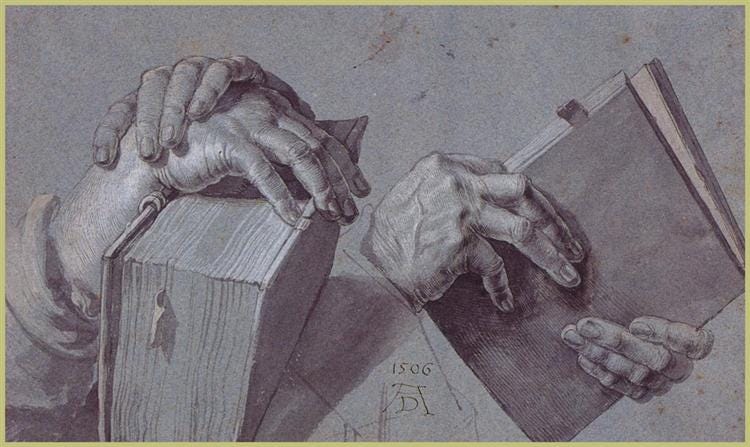Exploring the Essence of a Fulfilling Life Through Literature
Written on
Chapter 1: The Pursuit of Wisdom
In the realm of literature, Mortimer Adler once noted, “The goal isn’t to see how many books you can finish, but rather how many truly resonate with you.” Socrates echoed this sentiment, suggesting that by engaging with the writings of others, we can readily access the insights they’ve painstakingly crafted.
When selecting what to read, one might ponder: which books pave the way to a fulfilling life? These were the questions I posed to Karen Swallow Prior, author of On Reading Well: Finding the Good Life Through Great Books.
The act of reading deeply is a virtue in itself, fostering further excellence, as Prior articulated during our discussion.
Section 1.1: The Virtue of Reading
Prior elaborated, “Reading well is not just an act of virtue; it also cultivates further virtues.” Before embarking on her book project, she developed a profound appreciation for classical philosophy regarding virtues, particularly from thinkers like Aristotle and Aquinas. In writing her book, she sought to explore the definitions of these virtues and observe their manifestation in everyday life.
Engaging with intricate prose or poetry requires us to focus, to slow down, and to perceive the world through diverse perspectives. Prior shared her realization that her identity as a reader significantly influenced her thoughts, viewpoints, and virtues.
Subsection 1.1.1: The Art of Reading Well
C.S. Lewis once advised, “After finishing a new book, refrain from starting another until you revisit an old one.” Similarly, Henry David Thoreau urged, “Prioritize the best books, or you might miss them entirely.” Seneca cautioned against an indiscriminate reading approach, advising in his correspondence with Lucilius to limit oneself to a select group of authors for a more meaningful engagement.
According to Prior, merely reading wisely is insufficient; one must also read virtuously. Literature serves as a vessel for virtue, providing illustrations of virtuous acts and enabling readers to mentally practice these ideals. As Descartes observed, “Reading quality literature is akin to conversing with the most esteemed figures of history.”
Section 1.2: Understanding Prudence
“What does prudence mean?” I inquired. Prior succinctly defined it as practical wisdom. While wisdom may often be theoretical, prudence applies to real-life situations requiring prompt decision-making and consideration of various factors.
Perfectionism deviates from prudence; as the saying goes, “The best is the enemy of the good.” Prudence involves balancing and assessing factors to complete tasks rather than delaying them due to perfectionist tendencies.

Chapter 2: Reflections on the Power of Books
Carl Sagan eloquently captured the enchantment of books: “A book is crafted from a tree, composed of flat, flexible parts—still referred to as ‘leaves’—marked with dark, pigmented symbols.” With a single glance, you can hear the thoughts of another soul, perhaps one who lived millennia ago.
“Across ages, the author speaks silently yet clearly to you. Writing is arguably humanity’s most remarkable invention, connecting individuals from distant times who never met. Books transcend time, serving as proof of our ability to weave magic.”
Thank you for engaging with this exploration; I hope you discovered valuable insights. For more reflections or interviews, consider tuning into our podcast. Lastly, subscribe to our complimentary weekly email meditation to receive three timeless insights directly in your inbox.
This video features Karen Swallow Prior discussing the intersection of great literature and the pursuit of a meaningful life.
An engaging dialogue with Prior as she shares her thoughts on reading, virtue, and the transformative power of literature.